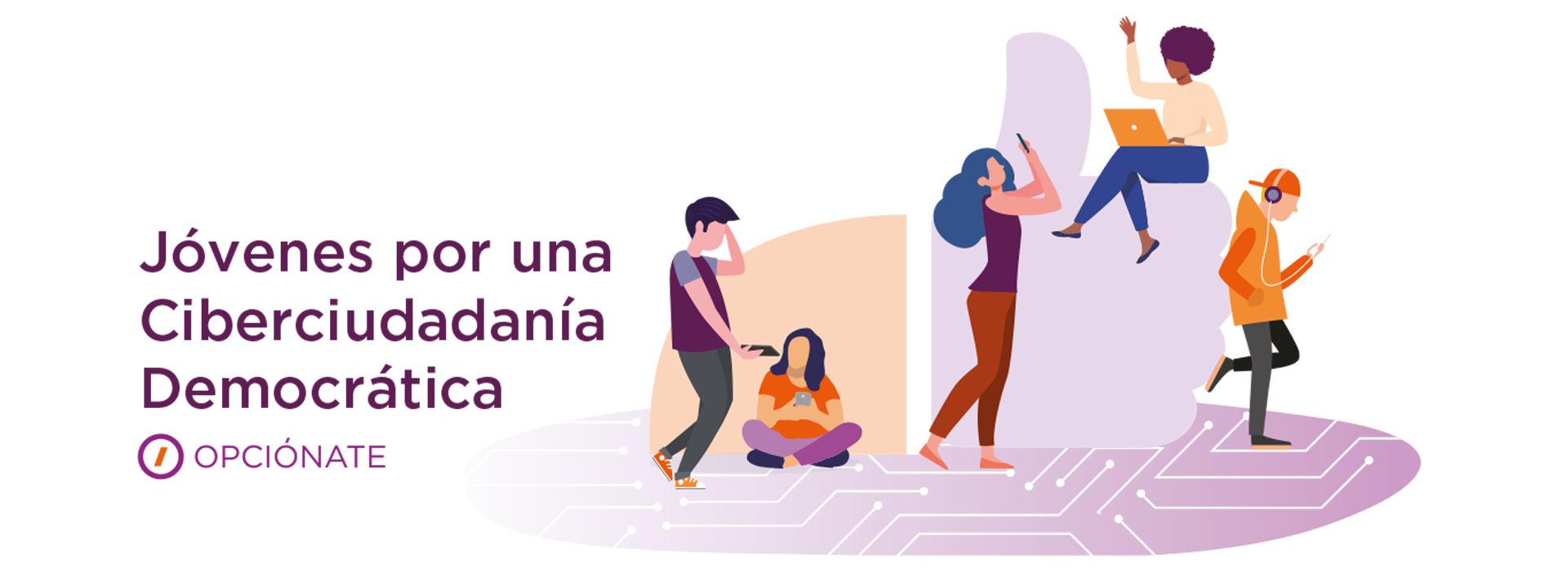Young people for a democratic cyber citizenship

Client: Cabildo de Gran Canaria Presidency Office, Citizen Participation Unit.
Dates: 2020-2021
Scope: Institutions and Social Projects
Services: Training, Development, Materials, Research
Description:
Between January and April 2021, sponsored by the Citizen Participation Unit of the Cabildo de Gran Canaria Presidency Office and within the framework of project ‘Jóvenes por una ciberciudadanía democrática [Young people for a democratic Cyber citizenship]’, Opciónate will put in place actions to promote the concept of digital citizenship as well as the social engagement and participation among young people on the Internet.
The initiative is mainly intended for young citizens and has been designed to welcome 30 participants from Gran Canaria aged between 16 and 18 years who will receive online, experiential and participatory training, following which attendants will debate and discuss not only different points related to democratic cyber citizenship, but also their own online practices and ways of social engagement on the Internet. Finally, they will present ideas and messages to be featured in a campaign aimed at other young people and will participate in its advertising.
This process will be carried out through a training – research – action – participation methodology based on a gender and rights orientation. To this end, participants will include young people from different municipalities and realities, and, as far as possible, from rural and urban areas, as well as young people at risk of social exclusion, while ensuring a balanced proportion between the number of women and men. After the training, once the ideas and contributions of the participants have been shared, an online campaign will be developed to educate other young citizens on their rights and duties in the online world, the existing possibilities of social and political online engagement, better cyber coexistence and cybercrime prevention, detection and mitigation.
The campaign will include the making of a video spot with key slogans and the creation of an online space designed to publish campaign-related content, and provide a space for participants to exchange ideas and meet. It will also feature all the material created and a forum with testimonies and ideas. With the collaboration of the participants, an online survey will be conducted in order to gather information, but also to enable a self-analysys that will help us reflect on our online behaviour and practices, the criteria which define democratic cyber citizenship and ultimately obtain a symbolic cyberpassport accrediting cyber citizenship.
This initiative will be widely disseminated to motivate young people all around the world to reflect on cyber citizenship by filling in the online form to obtain a cyberpassport accrediting good practices and positive participation in the public cyberspace. The closing involves a final event held online in the form of a videoconference where participants and key actors will be presented with the main conclusions and the campaign video.
Keywords: democratic e-citizenship, young people, social and political participation, gender approach, online training.

